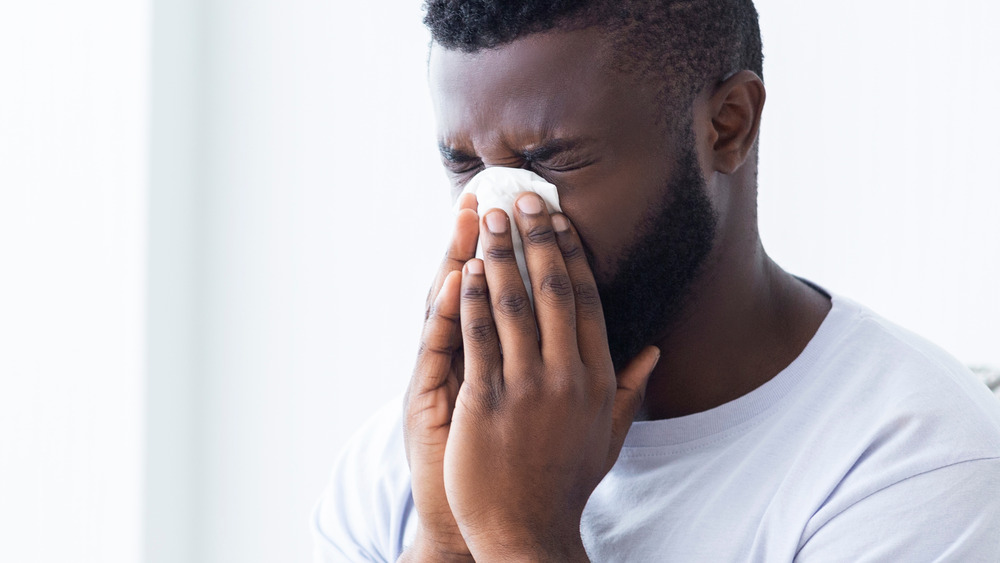Surprising Side Effects Of Blowing Your Nose Too Hard
While it's easy to assume the only consequence of a hard nose blow might be a loud honking sound, science tells us that if we put too much power behind a nasal clearing blow, it may not only affect our nasal cavity, but other areas of the body as well.
A study conducted by researchers at the University of Virginia found that forcefully blowing our nose builds up an amount of pressure 10 times greater than that of an involuntary response such as a sneeze or cough (via The Health Site). When we blow too hard, the power of all that added pressure can cause the blood vessels stored within the lining of the mucus membrane to burst, potentially resulting in nosebleeds (via Berkeley Wellness).
Additionally, harsh nose blowing can also cause ear or sinus infections. Should you become sick from a viral or bacterial infection, the germs in your nasal cavity can be transferred into the sinuses or inner ear through nose blowing. This is due to the fact that our ears, nose, and throat all function as one connected system.
Nosebleeds, ear infections, and aneurysm ruptures can all be triggered by nose blowing
In rare cases, blowing your nose can actually increase the chances of a brain aneurysm rupture (via Science Daily). A 2011 study published by the American Heart Association, determined eight leading factors that most contribute to increased risk of brain aneurysm ruptures. Of these eight factors, nose-blowing was among the top three — just below strenuous physical activity and drinking coffee.
Within the report, experts conducting the study further elaborated on the nature of brain aneurysms defining them as, "intracranial aneurysm (IA), a weakness in the wall of a brain blood vessel that often causes it to balloon. If it ruptures, it can result in a subarachnoid hemorrhage which is a stroke caused by bleeding at the base of the brain."
By examining participants with unruptured intracranial aneurysms, it was found that what all of these potential triggers had in common was the prompting of an abrupt, temporary increase in blood pressure. Health experts advise being mindful of the intensity of one's physical exercise and suggest that some drugs may also be helpful in preventing ruptures and hemorrhaging though further research is still needed on these claims.
To minimize risk, medical professionals advise taking a softer approach to nose blowing. Utilizing saline sprays and decongestants are alternative ways to help keep nasal passages clear from blockages (via The Health Site). Lastly, when it comes to nose clearing technique, try gently blowing each nostril separately by lightly holding one closed before alternating sides.


